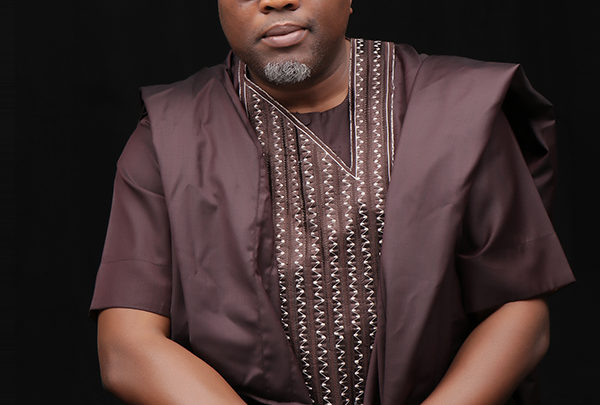
Moniepoint – one of Nigeria’s fast-growing financial technology (FINTECH) companies recently organized a symposium and presented a report on the informal economy. as most pundits may have known, the informal economy in Nigeria occupies a solid place in the economy whether it was about employment, contribution to GDP or other indices. I believe that our economy is still largely informal for several reasons. History supports that claim. African economies in the main, had to build from the scratch. The economic system we are operating was imposed top-down and largely alien to our traditional systems, philosophy and even psychology. The ability to make progress rapidly after colonialism therefore depended on several variables. If looked at in that manner, it becomes obvious that smaller nations, and those that have stronger affinity with the European nations who colonized all of Africa may be able to get things going quicker.
This should explain why South Africa – sans its worst-in-the-world inequality problem – is far ahead of the curve in technology, banking and finance, industry and even agriculture. The affinity with the Dutch and British (and even the Indians) who settled much earlier and stayed put – is very much useful for that country. Most of North Africa will enjoy the advantage of always being close to Europe. In parts of Morocco and Algeria you could see parts of Europe from the shores. The Arabs of this region have had great influence all over Europe, from Spain to Italy and every other place they could go. This tells from the slightly kinky hair of people in parts of those European countries – and even their names. Then we should watch out for countries in East Africa – like Kenya – where the British never left and the Indians have a great influence in trading businesses. This is also evident with the presence of many foreign banks (Indian, Arab and British), in Kenya. Then smaller nations may be easier – most of the time – to corral in the right direction – Rwanda, Seychelles, Mauritius, Botswana, for just some samples. I am not justifying Nigeria’s current – but improving economic situation – but we are confronted obvious with a more complex issue. Nigeria is one of those countries that have been almost totally left to their devices. If you went to Ghana, you will see how that country is made to mirror Britain in many ways. And for the francophone African countries, they say that France never left, and I believe. Their economies are almost fully run by the French – starting with their currencies.
So, the gist is about analysing why the Nigerian economy – and indeed most of Africa – is still largely informal. I hope the momentary rigmarole above – which is not fully scientific but based on my observations and my bias for a branch of holistic approach to economics – explains it a bit. The Moniepoint report is available online and does explain a lot about the informal sector. In my current employment, I have interacted a lot with the National Bureau of Statistics, and this informal sector is one question that they constantly try to tackle. The Bureau believes that in the ongoing rebasing efforts more of the informal sector in Nigeria will be captured. Perhaps I should quickly chip in that one of the major issues about informality is the accuracy of data or relative lack of same. Whereas nations in northern Europe have been used to the ‘modern’ governance that everyone is now running for centuries, and people there have come to trust that governments will solve every social problem so long as they pay their taxes, African nations are less trusting – maybe because of our relatively shorter experience and history with democracy in any shape or form. Some analysts will try to explain that African governments have been disappointing, leading to this relative mistrust, but I aver that even the relative inefficiency in governments in these parts is part of the history. Barring any kneejerk actions that sets most of us back, governance is very likely to improve in the worst nations of Africa. The information flow enabled by social media is one great facilitator of that.
For decades now, the Nigerian government – like others in Africa – has tried hard to reduce informality in the economy. The procedure is to encourage more businesses to get registered, to operate bank accounts, to register for taxes – even if they are too small to pay any (the Nigerian government has offered zero taxes on businesses with turnovers less than N25 million yearly. This is about $16,000 in real terms – and $160,000 in purchasing power parity terms, for every dollar in the US has ten times its capacity here). It is great to formalize, because government needs the data, principally. How does government provide the amenities and infrastructure that is needed in society if there is no sense of how many people live in a country and how they are distributed – and in this instance, how many businesses are there and what do they do, what are their turnovers and profits like etc? Efforts and strategies must continue in the direction of formalization. But there were some observations I made on the day of the symposium and launching of the Informal Sector Report that I wish to develop here.
The question I asked when I was invited for a goodwill message was ‘What if the Future is Informal’. Perhaps because of the little training I had attended on Futurism with the University of Stellenbosch in 2019, I started thinking about perhaps if we were fighting against a very powerful phenomenon – the informalization of the future. Let me explain.
- BANKING HAS CHANGED – The symposium I referred to above was organized by Moniepoint, one of the fintech companies now making waves. Most people in the not-so-formal sector and the informal sector now have accounts with organisations like Opay, Palmpay, Kuda and the rest (ask your Bolt driver). These are not traditional banks. Some are actually neobanks, but they are getting and increasing level of business that should have otherwise gone to the traditional banks. Whereas many customers use these platforms to quickly access their funds due to the ease embedded in their set up, chances are that in a short while they will actually become the main repository of our people’s bank balances. If formalization is about ensuring that businesses and individuals own bank accounts that can help document their financial transactions, the future already looks like the traditional banks will lose out in the game in favour of these new arrangements on apps etc.
- MONEY IS CHANGING – THE CRYPTOCURRENCY QUESTION – Even the concept of money is changing. Formalization is the idea that within the ambit of current knowledge, people should be able to keep their monies in traditional, open institutions which can offer them financial inclusion and allow them plan better. But the concept of cryptocurrency takes that to another level. First, cryptos can be accessed without the strictures of traditional banking. Funds can also be held anonymously – invisible to ordinary eye except investigators mount an intelligent process of inquiry. Cryptocurrencies are a scary phenomenon to some degree because it is de-centralised banking – meaning it desires to remove central banks from the middle of banking, controlling the financial system and supervising/regulating banks. The idea came up in 2006 in the wake of a global banking meltdown when the fears of the rather faceless proponents of this de-central-ised banking came true viz that central banks were not only too powerful to do and undo as they wished, but that they also used taxpayers’ monies to bail out their friends who run major commercial and investment banks. Over $700 billion or 5% of the then US GDP was spent on that bailout. The long and short is that banking has changed and even Nigeria is now beginning to have another look at cryptocurrency – because of its inevitability (I still am not a fan though). There is a chance that more and more young people will subscribe to all forms of cryptocurrencies in the near future, rendering central banks and by extension governments weaker around the world.
- BUSINESS AND MONEYMAKING HAS CHANGED – So, the three key platforms of formalization are banking, registration of companies with government institutions, and registration for taxes. it’s important to note that most folks are averse to taxes all over the world anyway. But the nature of business and moneymaking has changed. Many people are now doing businesses online without any need for registration of their business names. Many have created brands, set up apps and websites, opened accounts with different apps and e-platforms, avoiding the trouble of filing loads of documents or reporting to governments how much they are earning. Many of our young folks are doing business increasingly this way. Yet others – like musicians, footballers, comedians, movies stars etc – don’t even have to have a business name. They make billions of dollars just by being themselves. This poses a great challenge to formalization as we know it.
- LEARNING/EDUCATION HAS CHANGED – Even learning and education has changed. Many people are getting increasingly home schooled. Children prodigies are getting discovered daily, with one achieving a PhD degree at barely 17/18. People are growing so fast these days and all the rules have been dumped in the ocean. Today, what matters is what you can do to pull the crowd, and even nuisance has never been so lucrative. Just by being notorious you can make all the money you want. People now train themselves on all sorts of skills and achieve professionalism right there on YouTube and other electronic platforms. This erodes the need for formalization as we know it. Even the best traditional universities in the world have succumbed to placing their courses on e-platforms like Coursera, EdX, and the rest. If more and more young people around the world key into this manner of learning, then the opportunity of shaping their minds to pay taxes, respect government, or think collectively, gets eroded still.
This formalization challenge is a great one for Nigeria. But it’s also an international phenomenon. Whatever the case is, we all must begin to envision how things will play out. Will governments become vulnerable in the future as to beg for taxes from people’s crypto accounts? Will traditional banks witness existential crises? Or if we flip it around, are there more opportunities for all – including governments – in a world driven by creativity, spontaneity, informality? Who will plan for the things that hold us together? I mean public good, infrastructure, local and national development? Are we looking at a world driven by crass selfishness? Or is it all a prelude for dystopia or a glorious future? Now, I don’t have an answer to these questions. I just know that we need to start pondering over them and preparing for any eventuality. Could we be fighting an unstoppable phenomenon? Is informality the new ‘smart’?



